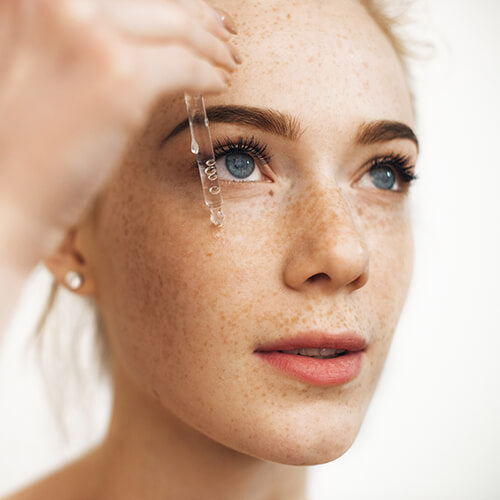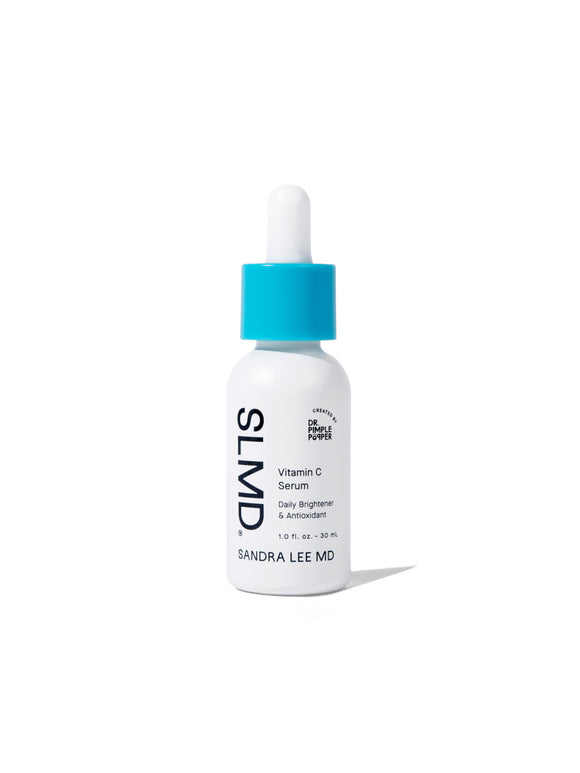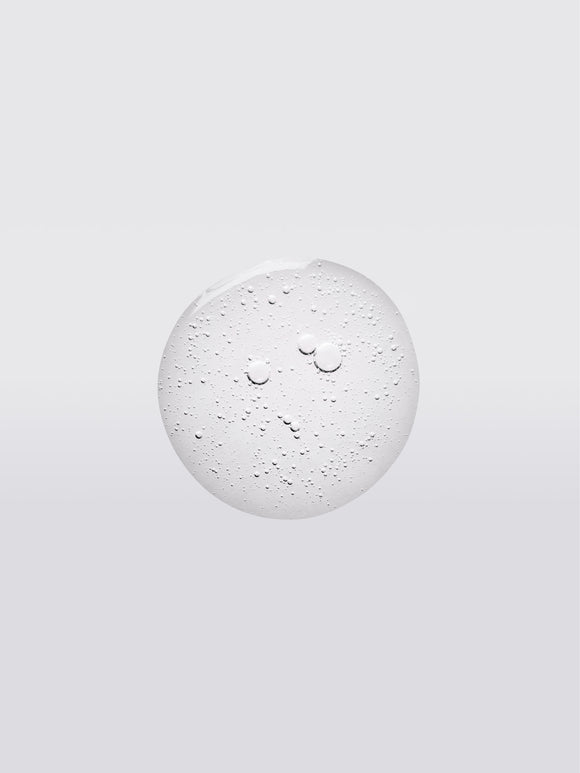
Ingredient Spotlight: Amino Acids
Lately, amino acids have been cropping up in a variety of skincare products, especially serums and moisturizers. So what are the benefits of amino acids for skin — and should you be adding these ingredients into your skincare routine? We turned to board-certified dermatologist Dr. Sandra Lee for answers.
Published:
4 minute read
Unless you slept through high school biology, you’ve heard of amino acids and their overall importance — in a building-blocks-of-DNA, key-to-our-very-existence kind of way. So it only makes sense that lately, amino acids have been cropping up in a variety of skincare products, especially serums and moisturizers.
So what are the benefits of amino acids for skin — and should you be adding these ingredients into your skincare routine? We turned to board-certified dermatologist Dr. Sandra Lee for answers.
What are amino acids?
Every protein is made up of amino acids. Typically when we hear the word protein, we think about our diet — about animal sources like meat and eggs, or plant sources like quinoa and soy. But why is it so important that we get adequate amounts of the right kinds of protein in our diets?
Because protein is crucial for just about every structure, function and process in the human body. And as we mentioned, proteins are made up of organic compounds called amino acids. There are about 20 or so required to make all of the proteins needed for human life, and they’re classified into three types:
- Essential: we don’t make these naturally, so it's “essential” that we get them from our diet. The 9 essential amino acids are histidine, isoleucine, leucine, lysine, methionine, phenylalanine, threonine, tryptophan, and valine.
- Non-essential: these are made by the body from the proteins we ingest. They include alanine, arginine, asparagine, aspartic acid, cysteine, glutamic acid, glutamine, glycine, proline, serine, and tyrosine.
- Conditionally essential: in certain situations (like stress, growth spurts, illness, or pregnancy), the body requires more of an amino acid than it’s capable of making internally, so it becomes “essential” to get it from dietary sources.
What do amino acids do for the body?
A better question might be what don’t these superstars do for us — since amino acids are so integral to our existence. These compounds form the building blocks of proteins that are critical to our survival in 5 main ways:
- Structure: amino acids are the basis of all protein, which makes up every cell in the body
- Repair: healing and building new tissue
- Nutrients: carrying oxygen and nutrients to every cell
- Enzymes: facilitating all kinds of chemical reactions, from digestion to cell division
- Endocrine: regulating every process in the body via hormones
Are amino acids important for skin?
In case you missed the memo: our skin, hair and nails are mostly made of protein (which, as you now know, consists of amino acids). Three primary proteins include:
- Collagen: produced by fibroblasts in the dermis and essential for providing skin’s structure
- Elastin: also made by fibroblasts, this protein makes skin pliable
- Keratin: made by keratinocytes in the dermis, it’s the tough substance that primarily makes up the epidermis, hair, and fingernails.
It’s speculated that individual amino acids may provide a host of skin benefits, including:
- Minimizing fine lines and wrinkles
- Reducing hyperpigmentation
- Protecting against free radicals Improving skin barrier function
- Boosting skin’s natural moisturizing factor (NMF)
- Regulating inflammation
What amino acids are best for skincare?
There is an abundance of anecdotal evidence (read: noticeable but not scientifically proven) from researchers, skincare professionals and dermatologists alike showing that some amino acids are beneficial for skin health. There is a lack of definitive scientific proof, however, as many of the clinical studies have been small and centered on skincare formulations, rather than focusing on individual amino acids.
Much of what’s been studied clinically has focused on the role of amino acids in wound healing. Because collagen synthesis is such an important component of tissue repair, some researchers speculate that adding amino acids topically may have some of those same collagen stimulating effects. Additionally, their role in regulating the inflammatory response may explain why certain amino acids seem to alleviate photodamage.
Here’s a roundup of the most popular amino acid skincare ingredients, and their purported benefits:
- Arginine: antioxidant, humectant (draws in moisture), NMF synthesizer, collagen booster
- Lysine: collagen booster, possible sebum regulator (no studies have proven this)
- Histidine: antioxidant, anti-inflammatory
- Glycine: collagen supporter, NMF component, cellular repair, pH buffer (can make other ingredients more compatible with skin)
- Leucine: tissue repair, collagen production
Can you combine amino acids with other potent skincare ingredients?
Generally speaking, adding an amino acid product into your skincare routine is perfectly safe, but make sure you’re listening to your skin. Gently exfoliating and using retinol can actually help your peptide products penetrate better. But if you start to experience irritation or sensitivity, try reducing your application frequency, or alternate with other actives between morning and evening, or every other day.
It's worth noting that copper peptides (a trending skincare ingredient that includes amino acids) don't play well with vitamin C — so keep that in mind when building your routine.
Here’s a sample SLMD Skincare routine (one for AM and two PM options) that incorporates an amino acid serum:
AM routine
- Cleanse (Salicylic Acid Cleanser)
- Tone (All Bright)
- Treat (alternate every other day Vitamin C Serum and amino acid serum)
- Moisturize (Dual Defender SPF 30)
PM routine (combination/normal/oily/acne-prone skin types)
- Cleanse (Salicylic Acid Cleanser)
- Tone (All Bright)
- Treat 1 (Retinol Resurfacing Serum)
- Treat 2 (amino acid serum)
- Moisturize (Hyaluronic Acid Moisturizer)
PM routine (dry/sensitive/combination/normal skin types)
- Cleanse (Salicylic Acid Cleanser)
- Tone (All Bright)
- Treat (amino acid serum)
- Moisturize ( Hyaluronic Acid Moisturizer)

Dr. Lee's Last Word
Amino acid ingredients are very trendy in skincare lately — and while they do show promise, we don’t yet have any significant clinical data to back up the claims. This doesn’t mean they’re not effective, I just recommend that patients use proven anti-aging ingredients (like retinol, vitamin C, and sunscreen) first, and then they can add in something like an amino acid or peptide serum and see if their skin shows additional benefits. But be sure to combine sensibly (avoid layering on too many actives at once) so you don’t irritate your skin.






